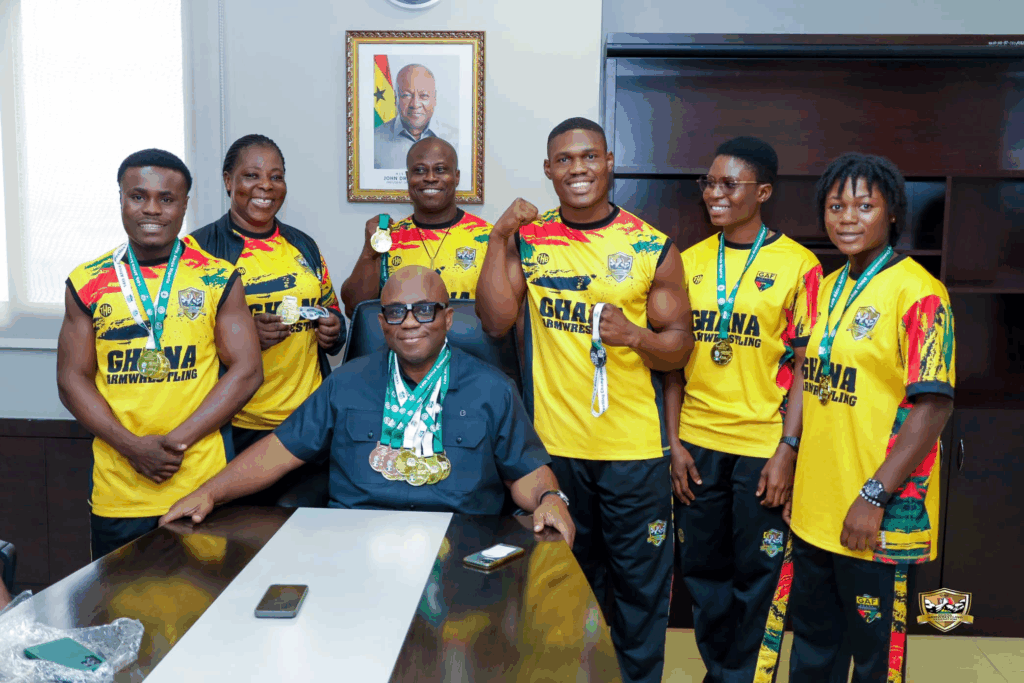
The Chief Executive Officer of the National Health Insurance Authority (NHIA), Dr. Victor Asare Bampoe, has restated the Authority’s commitment to extend sustained support to Ghana’s national arm wrestling team, Golden Arms, following recent achievements.
The team once again showed its dominance on the continent after securing 55 medals at the just-ended Africa Armwrestling Championship in Abuja.
Ghana’s successes, backed by corporate support, saw the delegation of the Ghana Armwrestling Federation pay a courtesy call on the NHIA Executive Management in Accra to convey their gratitude for the Authority’s support ahead of the continental championship.
Addressing the delegation, Dr. Bampoe praised the team’s accomplishments, calling them a source of national pride after an impressive medal haul.
He reflected on the 2023 Africa Games, where the team’s outstanding performance eclipsed the rest of Africa and drew nationwide admiration.
He noted that, in line with its support for corporate Ghana, the NHIA is committed to investing in arm wrestling to advance the GAF’s mission of making arm wrestling a leading sport in the country.

“Everybody loves a winning team. We are proud to be associated with your success. So long as you continue to deliver, we will continue to support,” he said.
President of the Ghana Armwrestling Federation, Charles Osei Asibey, stated that the NHIA’s support greatly lifted the team’s morale during the championship, helping them secure 26 gold, 20 silver, and 9 bronze medals.
This latest feat brings the team’s overall tally to 405 medals, with approximately 67 percent of the medals being gold.
The team announced their upcoming participation in the World Armwrestling Championship in Bulgaria from September 10 to September 22 and also revealed that Ghana will host the 2027 African Armwrestling Championship.
NHIA’s Deputy Chief Executive for Operations, Dr. Senanu Djokoto, lauded the team’s leadership and performance, reaffirming the Authority’s readiness to deepen the partnership.
Present at the meeting were Dr. Kofi Addo-Agyekum, Vice President, Ghana Armwrestling Federation; Husseini Akueteh Addy; and Nii Otoo Larkyne.
As a gesture of appreciation, the team presented their medals to the NHIA Executive Management and gifted them an official team jersey.
